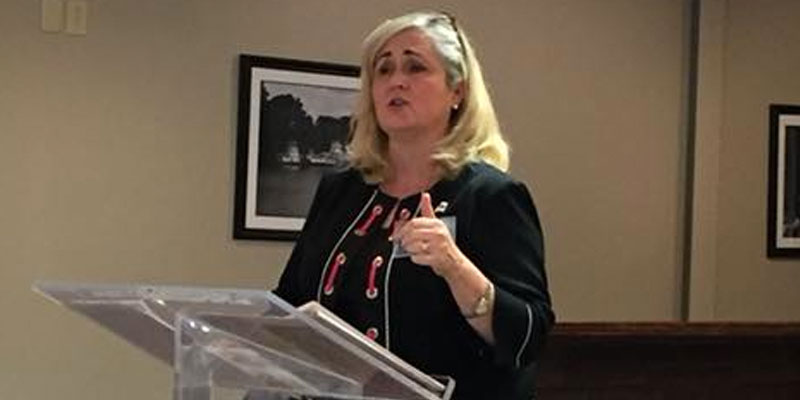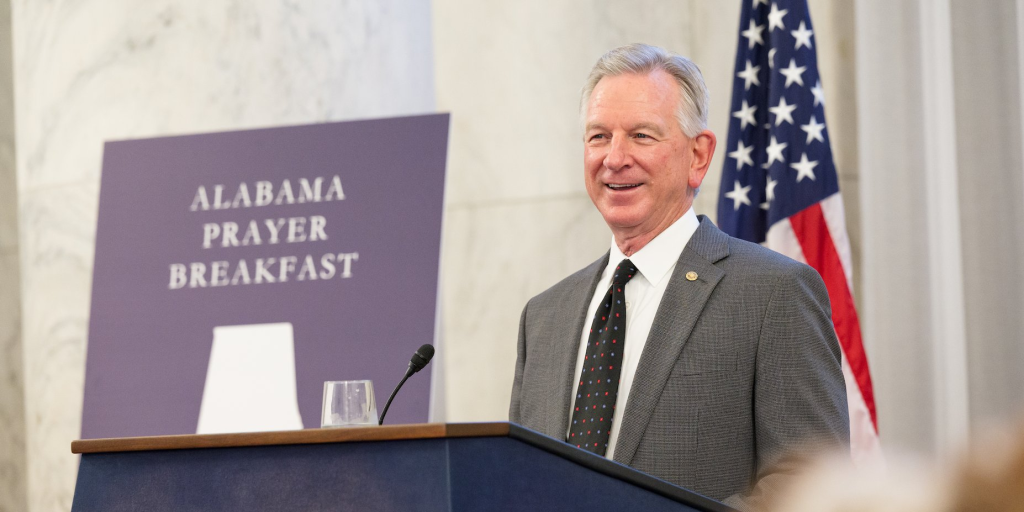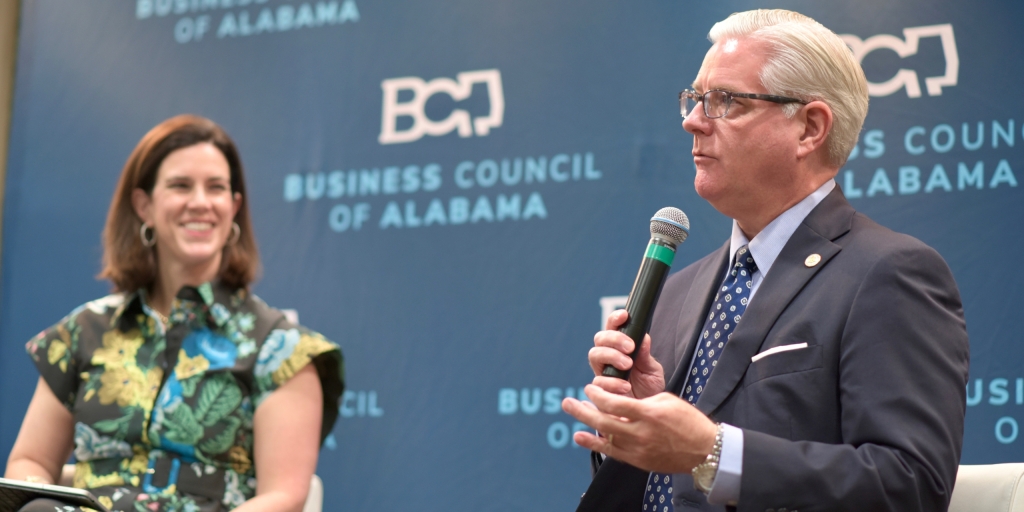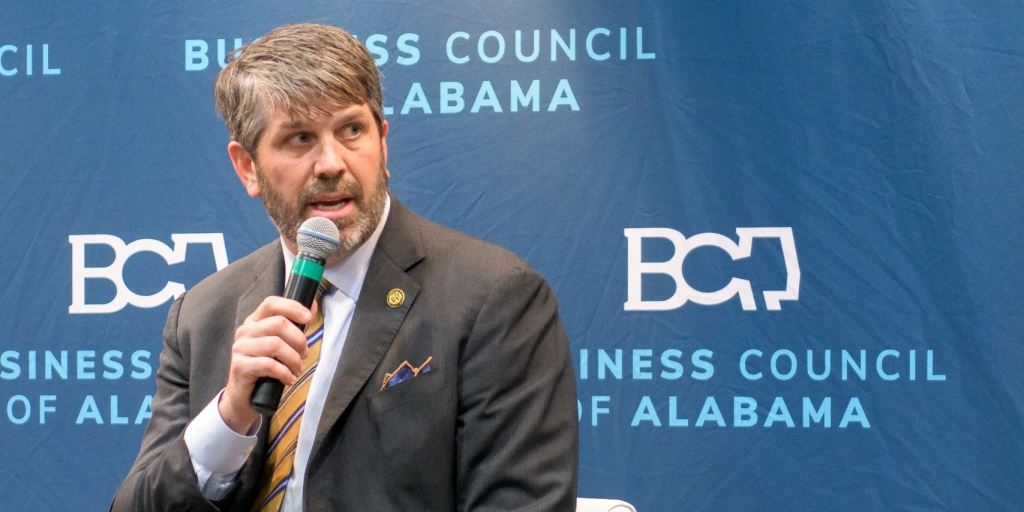A race for the Alabama Supreme Court has opened a rare rift between pro-business organizations that normally march in lockstep.
ProgressPAC, the political action committee of the Business Council of Alabama, has endorsed Mobile County Circuit Judge Sarah Stewart for the position held until January by Justice Glenn Murdock. She faces Circuit Court Judge Debra Jones and incumbent Justice Brad Mendheim, whom Gov. Key Ivey appointed to replace Murdock.
Murdock stepped down early to explore other opportunities — including a possible run for higher office.
But the Alabama Civil Justice Reform Committee, founded to fight lawsuit abuse, is backing Mendheim and quietly has raised questions about Stewart’s record.
The split has longtime political observers scratching their heads.
“They normally are two peas in the same lawsuit pod,” said Jess Brown, a political scientist at the Athens State University in north Alabama. “They tend to agree.”
With no Democrats on the ballot, the winner of the June 5 Republican primary is all but assured of winning a six-year term.
The Civil Justice Reform Committee points to a 2013 ruling Stewart issued on a workplace injury case in which she held a Mobile business owner liable for an accident suffered by an employee working for the contractor hired to repair the roof of the company’s warehouse.
Tom Dart, chairman of the Civil Justice Reform Committee, acknowledged that his organization often agrees with the BCA.
“Ninety percent of the time, we do, but not in this case,” he said.
Dart said his group’s endorsement primarily resulted from the fact that Mendheim is an incumbent — albeit, only for about two months — and has done a good job.
“We’ve had input from a lot of lawyers who had dealt with both of them,” he said.
Dart said the roofer case is not the only ruling his organization is concerned about, but he declined to offer other examples.
“That was one case,” he said. “There were others that we had considered.”
Neither the BCA nor the ProgressPAC responded to multiple requests for interviews. But in a news release announcing its endorsement of Stewart in December — before Ivey appointed Mendheim to the court — ProgressPAC praised Stewart’s fairness and neutrality.
“She is supremely qualified, knows the law, and will uphold the Constitution,” ProgressPAC Chairman Perry Hand said in a statement.
The case highlighted by the Civil Justice Reform Committee concerns a catastrophic accident suffered by a worker who lost his balance, crashed through a skylight and fell 20 feet to the ground while he was working on a warehouse owned by South Alabama Brick Co. in 2010.
A conservator for the incapacitated worker, Benito Perez, sued South Alabama Brick and a contractor that hired him called Cooner Roofing. According to court records, Perez worked for a subcontractor hired by Cooner to help repair the roof.
Stewart ruled that South Alabama Brick, along with Cooner, was liable for Perez’s injury and ordered both defendants to pay $12.6 million in damages. The judge determined that Cooner owed a responsibility to inform Perez of the dangers that the skylight posed. She wrote that South Alabama Brick failed its responsibility to find out if Cooner Roofer had a commercial business license — which it did not have — or ask about the training of the roofers that the contract provided or safety precautions it took.
The Supreme Court reversed Stewart’s decision on a 5-0 vote, with Murdock — the justice she wants to replace — writing the court’s opinion. He wrote that finding that South Alabama Brick had a duty to inform Perez about the skylight would mean that a company hiring a contractor “must somehow ‘pull aside’ or otherwise communicate directly with each and every employee of the contractor, subcontractor, employee of any subcontractor, etc.”
Murdock rejected Stewart’s conclusion that South Alabama Brick had a duty to find out that the contractor was not licensed or insured.
“In essence, the trial court held that SAB had a duty to protect Benito Perez from the negligence of his own employer by not hiring that employer in the first place,” he wrote.
Stewart said in an interview that she has rendered about 20,000 judgments in a dozen years on the bench.
“If there’s just one case they have a problem with, I’d say that’s pretty good,” she said. “I’d say that’s pretty good odds.”
The judge did not spare Cooner Roofing.
“The roofer who testified was probably the biggest liar I had ever seen in court,” she said.
Stewart said she is proud to have the ProgressPAC endorsement and was surprised when the Alabama Civil Justice Reform Committee endorsed Mendheim. She said the organization did not interview her or ask to address any concerns.
Stewart said she tries to adhere to the law and higher court precedent — even when she might not prefer the result.
“Sometimes as a judge, you have to sign off on an opinion you don’t personally agree with because that’s the law,” she said.
Judges are referees, not policymakers, Stewart said. She offered a specific example. The state Legislature several years ago created voluntary sentencing guidelines to even out regional disparities in punishment.
Judges do not have to impose recommended sentences but must document their reasons for departing. Some jurists have chaffed at the reduced discretion.
Stewart said judges can follow the standards or find them unconstitutional.
“But you don’t get to say we don’t like them,” she said. “We don’t make policy.”
(Image: Judge Sarah Stewart/Facebook)
Brendan Kirby is senior political reporter at LifeZette.com and a Yellowhammer contributor. He also is the author of “Wicked Mobile.” Follow him on Twitter.













